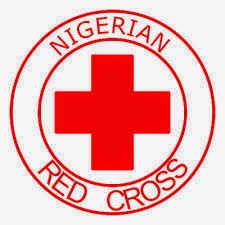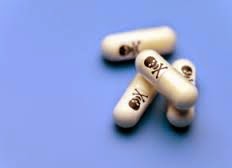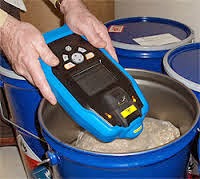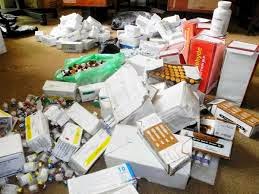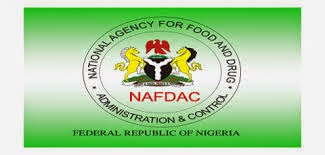If you are Nigerian and you live in Nigeria, you must remember the last
time you held up a bottle or the pack of a food or drug item just to inspect it
for a NAFDAC number. It’s almost second nature for most people, including myself.
The NAFDAC stamp of approval on food and drug items gives a sense of security
and lets you feel confident knowing its safe to use. The agency is not only at
the forefront of the fight for safeguarding public health in Nigeria but it’s
also doing a fine job.
NAFDAC is the National Agency for Food and Drug Administration and Control,
an agency whose mission is to safeguard public health by ensuring that only the
right quality food, drugs and other related products are manufactured,
exported, imported, advertised, sold and used. Established by the National
Agency for Food and Drug Administration and Control Act, NAFDAC functions,
among others, include: to regulate and control the importation, exportation,
manufacture, advertisement, distribution, sale and use of food, drugs,
cosmetics, medical devices, bottled water and chemicals.
It is mandatory for parties in the food or drug industry to register
their products with the agency in accordance with the law. The functions of the
Agency are listed in Section 5 of the Act, they include:
(a) regulate and control
the importation, exportation, manufacture, advertisement, distribution, sale
and use of food, drugs, cosmetics, medical devices, bottled water and
chemicals;
(b) conduct appropriate
tests and ensure compliance with standard specifications designated and
approved by the Council for the effective control of the quality of food,
drugs, cosmetics, medical devices, bottled water and chemicals and their raw
materials as well as their production processes in factories and other
establishments;
(c) undertake appropriate
investigations into the production premises and raw materials for food, drugs,
cosmetics, medical devices, bottled water and chemicals and establish relevant
quality assurance systems, including certificates of the production sites and
of the regulated products;
(d) undertake inspection of
imported food, drugs, cosmetics, medical devices, bottled water and chemicals
and establish relevant quality assurance systems, including certification of
the production sites and of the regulated products;
(e) compile standard
specifications and guidelines for the production, importation, exportation,
sale and distribution of food, drug, cosmetics, medical devices, bottled water
and chemicals;
(f) undertake the
registration of food, drugs, cosmetics, medical devices, bottled water and
chemicals;
(g) control the
exportation and issue quality certification of food, drugs, cosmetics, medical
devices, bottled water and chemicals intended for export;
(h) establish and maintain
relevant laboratories or other institutions in strategic areas of Nigeria as
may be necessary for the performance of its functions under this Act;
(i) pronounce on the
quality and safety of food, drugs, cosmetics, medical devices, bottled water
and chemicals after appropriate analysis;
(j) undertake measures to
ensure that the use of narcotic drugs and psychotropic substances are limited
to medical and scientific purposes;
(k) grant authorisation
for the import and export of narcotic drugs and psycho- tropic substances as
well as other controlled substances;
(l) collaborate with the
National Drug Law Enforcement Agency in measures to eradicate drug abuse in
Nigeria;
(m) advise Federal, State
and local governments, the private sector and other interested bodies regarding
the quality, safety, and regulatory provisions on food, drugs, cosmetics,
medical devices, bottled water and chemicals;
(n) undertake and
co-ordinate research programmes on the storage, adulteration, distribution and
rational use of food, drugs, cosmetics, medical devices, bottled water and
chemicals;
(o) issue guidelines on,
approve and monitor the advertisement of food, drugs, cosmetics, medical
devices, bottled water and chemicals;
(p) compile and publish
relevant data resulting from the performance of the functions of the Agency
under this Act or from other sources;
(q) sponsor such national
and international conferences as it may consider appropriate;
(r) liaise with relevant
establishments within and outside Nigeria in pursuance of the functions of the Agency;
(s) determine the
suitability or otherwise of medicines, drugs, food products, cosmetics, medical
devices or chemicals for human and animal use; and
(t) carry out such
activities as are necessary or expedient for the performance of its functions
under this Act.
It may interest one to learn that
not only the Police have powers to enter into a premises, NAFDAC officials are
empowered by virtue of Section 24 of the Act to do the same, the provisions
state that –
(1) An officer of the Agency may,
in the course of his duty, at any reasonable time and on production of his
certificate of designation if so required-
(a) enter (if need be by
force) any premises in which he reasonably believes that any article to which
this Act or the regulations apply is manufactured, prepared, preserved,
packaged, stored or sold;
(b) examine any article in
the premises which appears to him to be an article to which this Act or the
regulations apply or anything in the premises which he reasonably believes is
used or is capable of being used for the manufacture, preparation,
preservation, packaging, storage or sale of any such article;
(c) take a sample or
specimen of any article to which this Act or the regulations apply or which he
has power to examine under paragraph (b) of this subsection;
(d) open and examine, while on
the premises, any container or package which he reasonably believes may contain
anything to which this Act or the regulations apply or which may help in his
investigations;
(e) examine any book,
document or other record found on the premises which he reasonably believes may
contain any information relevant to the enforcement of this Act or the
regulations and make copies thereof or extracts therefrom; and
(j) seize and detain for such
time as may be necessary for the purpose of this Act, any article by means of
or in relation to which he reasonably believes any pro- vision of this Act or
regulations has been contravened.
(2) The owner or person in charge
of any premises entered by an officer of the Agency in pursuant of this
section, and every person found thereon, shall give all reasonable assistance
in their power to the officer and shall make available to the officer all such
information as the officer may reasonably require for the purposes of this Act.
(3) Any article seized under this
Act shall be kept or stored in such a place as the officer of the Agency may
direct and shall be returned to the owner or the person from whom it was seized
if the article upon analysis or examination is found to conform with the
requirements of this Act and regulations.
(4) Any article seized by an
officer of the Agency pursuant to this Act or the regulations may be submitted
to an analyst for analysis or examination and the analyst upon making such
analysis or examination shall issue a certificate or report in the prescribed
form setting forth the result of such analysis or examination, and the officer
of the Agency shall on demand deliver a copy of such certificate or report to
the owner of the article if the article is to be the subject of a proceeding
under this Act.
In the above stated provisions,
the expression “article to which this Act or the regulations apply”
means-
(a) any food, drug,
cosmetics, medical devices, bottled water or chemical;
(b) anything used for the
manufacture, preparation, preservation, packaging or storage of any food, drug,
cosmetics, medical device, bottled water or chemi- cal; and
(c) any labelling or
advertising material relating to or for use in connection with any food, drug,
cosmetics, medical device, bottled water or chemical, but does not include a
live animal.
Obstructing a NAFDAC official in the performance of his duties is an
offence liable on conviction to a fine of N5,000 or to imprisonment for a term not exceeding two years or
to both such fine and imprisonment. Also any person who contravenes the
provisions of any regulations
made under the Act is guilty of an offence and liable on conviction to the penalties
specified in the regulations. Where no penalty has been specified,
the person shall be liable to a fine of N50, 000 or imprisonment for a term of
one year or to both such fine and imprisonment. Where an offence under this Act
which has been committed by a body corporate is proved to have been committed
with the consent or connivance of, or to be attributable to any neglect on the
part of any director, manager, secretary or other similar officer of the body
corporate or any person purporting to act in any of those capacities, he, as
well as the body corporate, shall be deemed to be guilty of the offence and
shall be liable on conviction to a fine of N 100,000. The Federal High Court has
exclusive jurisdiction to try offences
under the NAFDAC Act.
Adedunmade Onibokun
@adedunmade


